Featured
Inflation, exchange rate, others: How Nigeria fared under Buhari, Jonathan administrations
Published
3 years agoon
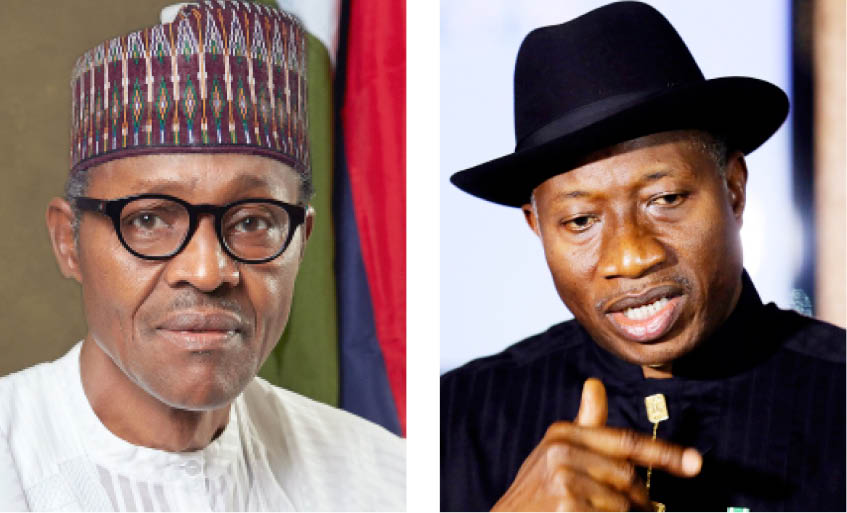
By Odunewu Olusegun
When President Muhammadu Buhari, defeated the then incumbent President Goodluck Jonathan in February 2015, Nigerians were hopeful of a better life, many years after, that hope has been dashed. Odunewu Olusegun writes
President Muhammadu Buhari came to power in 2015, raising the hope and expectations of many Nigerians with promises of better governance for the benefit of all, almost eight years after that promise, Nigerians are yet to feel or see any tangible difference between this administration, and the one it came to supplant.
His seven and half year reign as president has seen the nation wriggle through numerous economic challenges, with inflation and unemployment at worse levels than he met them.
On a comprehensive note, how has the economy performed under this administration?
Inflation
Under former President Goodluck Jonathan, especially between 2013 and 2015, Nigeria kept a single digit inflation rate 8.52 per cent, 8.06 per cent and 9.01 per cent in that order.
Since President Muhammadu took over power in 2015, Nigeria’s inflation rate has been consistently on the rise.
The annual inflation rate in Nigeria accelerated for the ninth straight month to 21.09 per cent in October of 2022 from 20.77 per cent in the prior month. It was the highest reading since September of 2005.
When inflation rises, cost of living increases and standard of living deteriorates. According to analysts, more people are pushed into the poverty class with a rising inflation rate
Food prices
There have been over a 100 per cent hike in key staple food prices since President Buhari assumed office in 2015.
Survey checks showed that a kilogramme of chicken that sold for N1000 in 2015 is now sold at N2,200, an increase of over 100 per cent. Also, the price of a 50kg measure of white gari that went for N6,000 in 2015 has more than doubled to N17,000 in 2022.
A 50kg of rice sold for N10,000 in 2015, but it is now selling for N30,000, while a 50kg measure of beans that sold for N21,500 in 2015 is now selling for N34,000.
A litre of oil that could be purchased at N250 in 2015 now costs N800. A big basket of fresh pepper, which sold at N11,000 in 2015 is now selling for N17,000.
Poverty rate
Apart from the yearly increase in Inflation, the poverty rate under the Buhari government has also increased, according to an NBS report, “2019 Poverty and Inequality in Nigeria”, based on data from the latest round of the Nigerian Living Standards Survey, conducted in 2018-2019 with support from the World Bank’s Poverty Global Practice and technical assistance from the LSMS program.
In June of 2022, the World Poverty Clock estimated that 83 million Nigerians live in extreme poverty or 39 per cent out of the 214 million Nigerian estimated population.
Unemployment rate
There has been a steady increase in the number of unemployed people since President Buhari assumed office in 2015.
Nigeria’s unemployment rate under Buhari’s government in 2015 increased to 9.9 per cent for the third quarter of 2015, according to the National Bureau of Statistics (NBS).
In its latest ranking, the NBS in the first quarter of 2021 in a report published on its website noted that Nigeria’s Unemployment Rate has risen from 27.1 per cent in the second quarter of 2020, to 33 per cent, translating to some 23.2 million people.
Naira Exchange Rate
The exchange rate management system is, perhaps, the area that has attracted most criticism to Buhari and the Central Bank of Nigeria, CBN.
As at May 2015, Naira exchanged for dollars at N197/$ at the interbank market and N217/$ at the parallel market.
At the Investors and Exporters Window, the Naira is hovering between N445.30 and N447 against the US Dollar, while it goes for an average of N767/$1 at the parallel market.
By implication, the dollar has weakened by over 120 per cent in the official market and over 180 per cent in the parallel market since Buhari came to power.
GDP
In terms of GDP growth, the current administration has recorded the worst GDP growth of 1.1 per cent in the past seven years.
Prior to Buhari’s Presidency, Nigeria’s Gross Domestic Production (GDP) was 6.31 per cent in 2014. But under Buhari, between 2015 and 2020, the Nigerian GDP growth did not exceed the population growth rate of 2.6 per cent, unlike during past administrations when the GDP growth outstripped the estimated annual population growth rate.
The World Bank, in a report, noted that between 2000 and 2014, Nigeria enjoyed a period of sustained expansion, during which the economy grew by an average of 7 per cent per year but has seen a drop since 2015.
Though, the Buhari’s administration in terms of GDP growth, has been affected by the global economic meltdown of the 2016 and 2020 COVID-19 pandemic, which led to a -1.92 per cent in the 2020 – worst under his government.
On the flip side, the short-lived Yar’Adua administration recorded the highest average annual real GDP growth rate of 7.13 per cent, followed by Obasanjo’s regime with 6.99 per cent, while Goodluck Jonathan recorded an average 6.1 per cent annual growth rate.
Debts
Nigeria’s total public debt rose to $100 billion in the first quarter of 2022, a naira equivalent of N41.6 trillion.
A look at the debt profile of past presidents of the country, the short regime of Musa Yar’Adua, which was later completed by Goodluck Jonathan between 2007 and 2011 recorded the highest annualized growth in debt profile as seen in the table below.
Ngozi Okonjo-Iweala, the former Minister of Finance, said, in defence of Jonathan, that the administration only received a debt of $21.8 billion.
She claims that the debts Jonathan sustained were in part $18 billion domestic component and $3.7 billion external component.
She went on to say that the large jump in debt from 2012 – 2015 was a result of a 53 per cent wage increase that was executed by the Yar’Adua administration.
On the flip side, Olusegun Obasanjo’s administration saw Nigeria’s debt profile drop significantly, with a CAGR of 17.59 per cent in its second tenure.
Insecurity
Data from the Armed Conflict Location & Event Data Project (ACLED) shows that the combined tenures of both the late President Yar’Adua and former President Jonathan recorded 32,694 deaths. Buhari’s government registered 41,903 insecurity-led deaths since he assumed office in 2015 till date.
Also, Jihad Analytics, a consultancy company which processes data on global and cyber jihad in a Tweet disclosed that between January and April of this year, Nigeria has had the highest number of attacks by the Islamic State (IS).
Jihad Analytics data shows that while Nigeria has recorded a total of 162 IS operations since January 2022, Iraq has recorded 120.
Since he became President, Nigeria’s score on the yearly Corruption Perceptions Index (CPI) ranking has ranged between 24 and 28 per cent, and its ranking is between 136 and 154.
The 2021 ranking is his administration’s worst which showed Nigeria as the second most corrupt country in West Africa after Guinea.
Fuel Subsidy
As at 2015 when Buhari came to power, petrol subsidy had been pruned to N100 billion. In the 2022 budget, Buhari proposed N4 trillion to the National Assembly in a subsidy regime that has been described as fraudulent and opaque. Oil theft has also worsened as the country loses N30 to N60 trillion annually, according to a 2022 research supported by Shell.
Trending
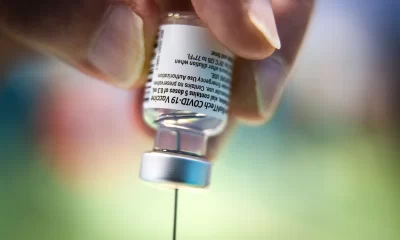
 Health1 week ago
Health1 week agoFOI data show thousands of heart failures reports linked to AstraZeneca COVID-19 vaccine

 Latest2 days ago
Latest2 days agoYoruba film industry mourns as popular actress aunty Ajara passes away

 Trends3 days ago
Trends3 days agoTonto Dikeh reunites son with Churchill after decade-long split
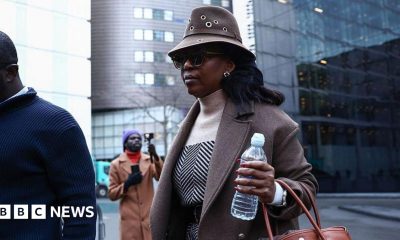
 Crime1 week ago
Crime1 week agoUK Court hears digital, financial evidence in Diezani Alison-Madueke corruption trial

 Energy6 days ago
Energy6 days agoNNPC unveils gas master plan to boost Nigeria’s energy sector
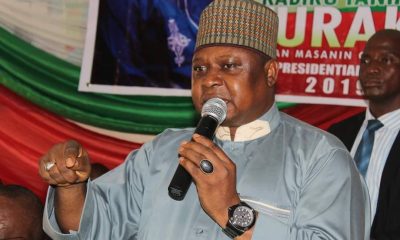
 Latest1 week ago
Latest1 week agoCourt nullifies PDP National Convention, bars Turaki, others from parading as party officers

 Aviation1 week ago
Aviation1 week agoAir Peace dismisses fraud allegations, says Lagos–São Paulo direct flight process ongoing
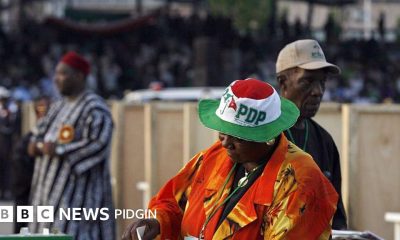
 Latest1 week ago
Latest1 week agoPDP affirms leadership from Ibadan convention after Federal High Court ruling

